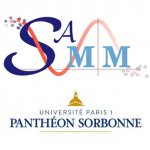Schelling Seminar Series (SAMM/CAMS) : William A. V. Clark (UCLA), Mardi 10 Octobre 2017 à 14h30
A Seminar Series in Memory of Thomas Schelling
Thomas Schelling, laureate of the 2005 Swedish National Bank’s Prize in Economic Sciences in Memory of Alfred Nobel, died on December 16, 2016.
This seminar series will explore the various fields covered by Schelling’s work : social segregation, choice under social influence, conflict and cooperation through game-theory analysis, global warming.
First Seminar in the Series :
William A. V. Clark, UCLA
This first seminar is sponsored by Univ. Paris 1 (SAMM), EHESS (CAMS), and Campus Condorcet.
Tuesday, October 6th — 2:30pm
Institut des Systèmes Complexes Paris - Île de France
Abstract :
Although Thomas Schelling was awarded the Nobel prize for “having enhanced our understanding of conflict and cooperation though game theory analysis”, for most social scientists his legacy is his work on the “tipping point” and how small differences in preferences can have macro effects on spatial organization. That thinking has been the basis for popular works like the Big Sort. The central contribution of Micromotives and Macrobehavior was to show how behavioral actions at the individual level create aggregate outomes across social structures. A combination of agent based and mathematical modelling, and survey analyses of mobility behavior, continues to inform our understanding of how social distance creates residential patterns. Because most residential mobility involves short distances the process of initial selection and continuing adjustment creates clustering by social distance. Sorting by race, ethnicity, income and education is likely to continue despite social intervention. At the same time there is some survey evidence of changing preferences in US contexts which may alter ethnic but not economic sorting.
